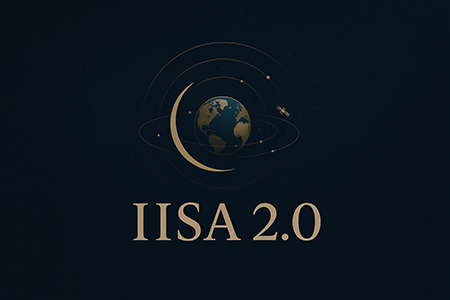By Jessica Harn
Resident Researcher, Neo-Jihadism & Transitional Challenges
In the beginning of October, Kabul signed a historic peace agreement with the controversial Hezb-i-Islami group, led by Gulbuddin Hekmatyar. Hezb-i-Islami was founded in 1975, claiming to be the Islamic representation in Afghanistan in the fight against the Communist government during the Cold War. Its early membership was drawn primarily from ethnic Pashtuns, and took much of its ideology from the popular ideas of the Muslim Brotherhood at the time. Hezb-i-Islami claimed to be a mujahedeen organization, and controversially is thought to have been the base for many of the terrorists who later joined either Al Qaeda or the Taliban because of its support for a unified Islamic state or caliphate.
Gulbuddin Hekmatyar was one of the main players in the Afghan civil war in the early 1990s, and was given the infamous title of the “butcher of Kabul” because of his active role in the massacres that took place in and around Kabul. Hekmatyar is said to have worked closely with Osama bin Laden in the early 1990s, and is accused of being a warlord guilty of war crimes. Despite these accusations, Hekmatyar was promoted to become Prime Minister from 1993 to 1994 but later fled the country to Iran when the Taliban took over Kabul in 1995-1996. From controversial roots both Hekmatyar and Hezb-i-Islami have been a thorn in the side of Kabul politics for over forty decades now, and the peace agreement signed between them and Kabul has surprised the international community.
The peace agreement has been controversial both because Afghan President Ghani is accused of softening his stance with questionable armed groups such as Hezb-i-Islami, and because Hekmatyar is being allowed to come back to power despite him being accused of committing war crimes. With Afghanistan’s long history of terrorist activity after the Cold War, many are pointing to the fact that it is high time for Kabul to join in peace talks, even if it is with a former opposition with questionable activities and connections. Ghani’s attempt at first coming to a consensus with Hezb-i-Islami may also have been a prelude to his attempt at peace agreements with the Taliban and other more serious terrorist-leaning organizations. Despite what may be labeled as a positive attempt from Afghanistan to change its attitude towards armed militias and terrorist groups, Hekmatyar is causing concern already because of his calls for the Taliban to join peace talks, and for the Afghan government to release Taliban prisoners and agree to some of their demands in what he considers a reconciliation process. Hekmatyar’s immediate response to have the Taliban join in peace agreements seems rather quick and pre-planned, which plays into the most recent development from Kabul: secret peace agreement talks with the Taliban in Qatar.
Only a month after the historic peace agreement with Hekmatyar, numerous reports have surfaced that secret talks have begun in Qatar between leaders from the Afghan Taliban and official representatives from the Afghan government for a possible peace agreement. There have also been reports that the Taliban have demanded both recognition as a formal opposition movement and the release of their prisoners by the Afghan government for the peace talks to begin. This is curiously similar to what Hekmatyar originally called for when he first spoke of a possible peace agreement between Kabul and the Taliban. Kabul however, has not addressed these demands yet, and the Taliban have denied they are negotiating a peace agreement with the Afghan government. There are new reports that the peace talks will now continue in Saudi Arabia.
These secret and surprising talks with the Taliban however highlight the changing attitude of Kabul towards groups such as Hezb-i-Islami or the Taliban. Kabul is seemingly more willing to discuss the option of dialogue and peace agreements, instead of the non-negotiation policy many countries take towards terrorists or other non-state militant actors. What this may mean for Afghanistan is a drawn out and long-term reconciliation process, in a country where groups such as the Taliban are now deeply rooted in tribal allegiances and ethnic loyalties. If a reconciliation process is what Kabul is aiming for with its recent peace agreement talks with both Hezb-i-Islami and the Taliban, it must be understood that there will be opposition before there is agreement. It has already begun, with the Taliban increasing its opposition and activity against the government after Hekmatyar and Ghani agreed to a peace agreement and called upon the Taliban to follow suite. Roadside bombings and suicide attacks have seen an increase in the month of October compared to September, and the most blatant opposition to the government by the Taliban was its attempt to take control of the city of Kunduz in northern Afghanistan. Thousands of residents have been forced to flee Kunduz, and General Dostum, who is leading the operation against Taliban forces in the area, has already been attacked once and had numerous security guards killed because of the attack. Afghanistan will most likely experience a continued attempt by those in the Taliban who refuse any agreement with Kabul to orchestrate violence and resistance, until an official and public peace agreement can take place with those within the Taliban who believe they can be strengthened through dialogue and negotiation.
The Taliban will continue to try to keep their tribal and ethnic support through a competition of strength and intimidation with Kabul, and will use violence as a form of strength while they are limited with the supplies and legitimacy the government has in abundance. The increase in violence by the Taliban is a sign of desperation and stubbornness in the growing pressure to join in peace agreements with Kabul. The secret talks held in Qatar are only a first step, and although it has paved the way for a new relationship with non-state actors, the Afghan government will need to brace itself for upcoming attacks as the internal debate of whether to join in peace agreements intensifies within the Taliban.
